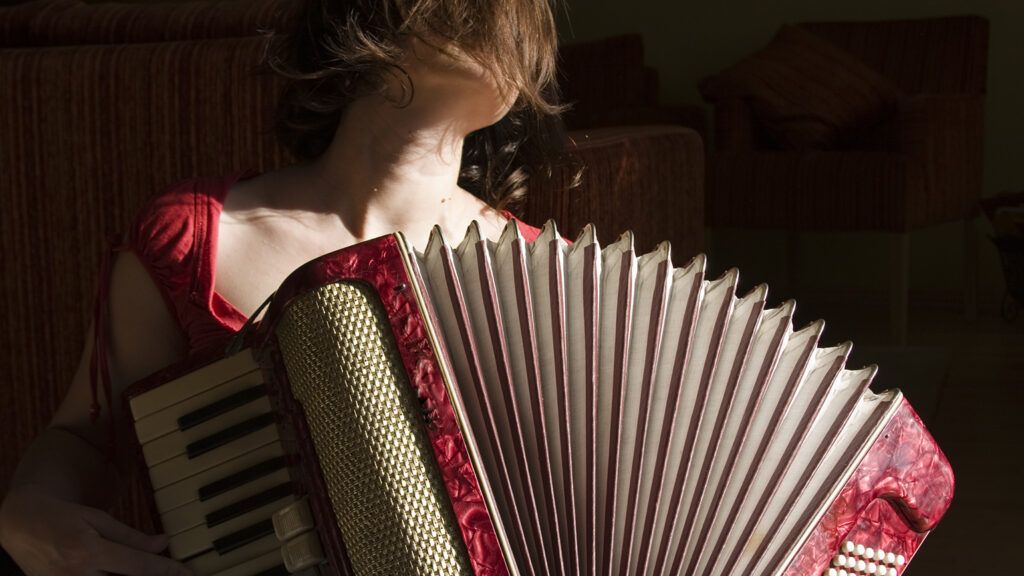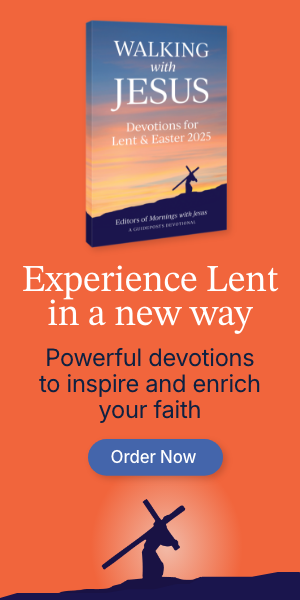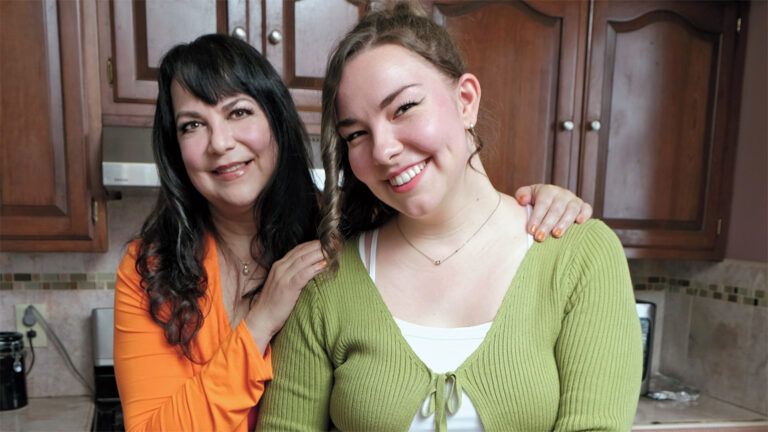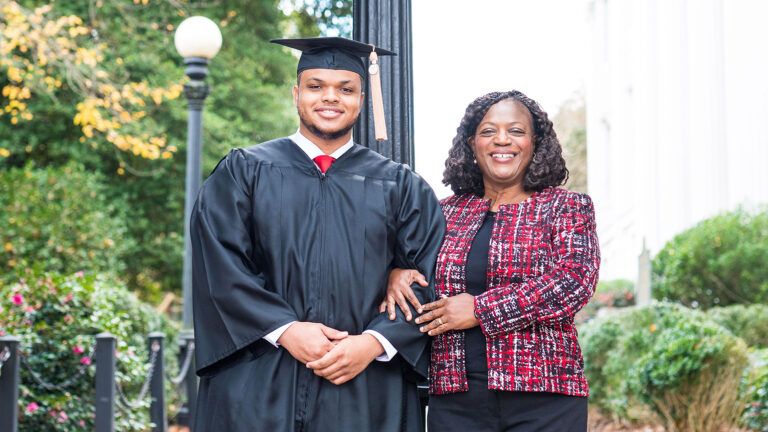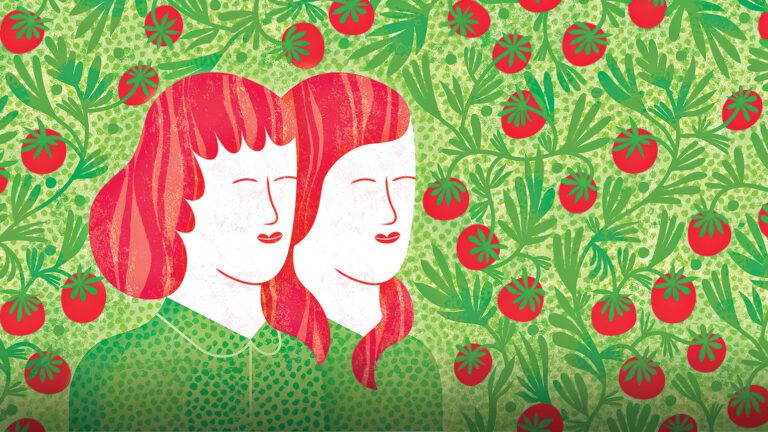Reflexively I reached to turn on my car radio, preset to KGBX, the soft-rock station I always listen to on my early-morning drives to my job at the post office. Then I glanced at my 14-year-old daughter in the passenger seat and thought better of it.
Liz wore a dress. That in itself bespoke the seriousness of the occasion. We were on our way to the Springfield, Missouri, district-wide music competition, where Liz would be playing a flute solo, her very first.
I knew from my own competition days back in Minnesota that it messed with your concentration to hear any music besides the piece you were planning to play.
“Dad said he might come,” Liz said. Her father hadn’t been a big part of her life since our divorce 10 years earlier, and she sounded both excited and scared.
Boy, did I know that feeling—wanting to impress your father and at the same time, being terrified of letting him down. Suddenly I was 12 years old again, sitting onstage at the Minnesota state music competition, fingers poised on the keyboard of my shiny black PanItalia accordion.
I looked out at the audience of proud parents. Then I saw him. My dad. He sat at the end of a row, arms folded, crew cut bristling. His piercing blue eyes narrowed behind his black-rimmed glasses and focused unwaveringly on me.
I completely choked. I’d practiced my contest piece for months until I knew it by heart, inside and out. But my fancy accordion might as well have been a cardboard box that afternoon. I forced out some semblance of a tune and fled the stage in tears.
No consolation came from my father, a World War II veteran who epitomized authority. He didn’t say a thing to me. He just took the wheel of our station wagon, his mouth a grim line as we set off on the 150-mile drive back to Duluth.
I didn’t say anything either. What could I say, really, after what I’d done? I knew how hard Dad worked to scrape together enough money for my accordion and lessons. But the one time he was able to come to a competition, I let him down.
The farther we drove, the more the silence in our station wagon grew until it stood like an impenetrable wall between Dad and me. It seemed an especially cruel punishment considering music had been our deepest connection.
By the time I came along, the last of five children, my father was worn out from the demands of supporting a large family. My brothers and sisters and I tiptoed around him when he came home from his shift at Jeno’s Pizza factory.
But on Sunday afternoons, Dad would sit back in his recliner and ask me to play for him. He loved the music of the Big Band era, and none more than the song “Twilight Time.” I taught myself the tune from the sheet music, just for him.
It didn’t seem to matter that my rendition was lacking in style. My father would hum along, his eyes closed, tears escaping from the corners as if I’d transported him to some magical, heavenly place.
Dad never said a word the entire way home, never again attended one of my competitions. I never got over the hurt of having disappointed the one person I’d most wanted to make proud.
I’d lost more than my composure that afternoon. I felt as if I’d lost the key to my father’s heart, and he died before I could find it again.
Why did you let me fail my father? I’d often wondered to God in the years since. Couldn’t you at least have given me a chance to make it up to him?
“Mom, this is it.” My daughter’s voice snapped me back to the present. I parked in the lot at Central High. “Good, I have time to warm up,” Liz said as we walked into the school. In the practice room, Liz took her flute out of its case, unfolded her music and ran through her piece flawlessly.
Just before we stepped into the recital hall, I gave her a hug. “Relax,” I said. “You’re going to do great.”
Liz laughed nervously. “Maybe you should wait till the competition’s over before you decide that.”
One after another, the soloists scheduled before Liz played. The clock clicked ominously close to her 11:05 performance time. “Dad’s here,” Liz whispered to me. “I can hear him in the hallway.” Her father trooped in, carrying a video camera. I felt a flutter of anxiety for Liz.
The next thing I knew she was no longer in the seat next to me but standing stiffly onstage beside the piano.
Mr. Hillme, her social-studies teacher and accompanist, winked at her. “Hey, not as bad as one of my tests, is it?”
Liz chuckled, the tension easing from her face, and lifted the flute to her lips.
Lord, please let her play her best.
Liz took a deep breath and launched into her solo. Her fingers danced along the silver keys. The melody floated out of the instrument, sweet and pure and honest. I closed my eyes, letting myself be carried away by my daughter’s song.
I forgot about the competition. I forgot about Liz’s nervousness at performing in front of her father. All at once I pictured my own father, patiently enduring my nightly accordion practice sessions though he must have yearned for peace and quiet after his long days at the pizza factory.
My practical dad, adamantly opposed to any kind of debt, conceding to make payments on a top-of-the-line, full-size accordion when I’d outgrown my secondhand student model. My stern, serious dad, cranking up our Lowrey organ, picking out the notes of a swingy Big Band tune and getting the whole house jumping.
My unsentimental, overworked father, leaning back in his recliner, his burdens chased away by tears of joy at hearing his youngest child play his favorite song. My dad, who must have felt so awful knowing his presence prevented me from playing well onstage that he hadn’t known what to say or do to comfort me—except to stay away and not upset me at my subsequent competitions.
Dad, I’m sorry I thought you were disappointed in me. I know you loved me even more than you loved music. I wish you could know how much I love you too. I wish I could play “Twilight Time” for you again.
Liz put down her flute and took a bow to thunderous applause (well, thunderous to a proud mother, anyway).
“Mom, I didn’t even see the music!” Liz exclaimed in the car on the way home. “I mean, I was looking at it, but I didn’t have to read it. I just played and let it take me away.” I knew what she meant.
Monday morning after Liz’s competition, I set out for my 4:30 a.m. shift at the post office. I clicked on my car radio. Silence. Then instead of KGBX’s soft rock, out of the speakers came the unmistakable brassy sounds of a 1940s-era big band. Where did this station come from?
A woman’s smoky contralto crooned words I’d never heard sung, though they were printed on the tattered sheet music in my old accordion case.
“Heavenly shades of night are falling, it’s twilight time.
Out of the mist, your voice is calling, it’s twilight time.
When purple-colored curtains mark the end of day
I’ll hear you, my dear, at twilight time.”
Tears trickled out of the corners of my eyes. The music of God’s love had bridged the years and the silence between my dad and me at last.
